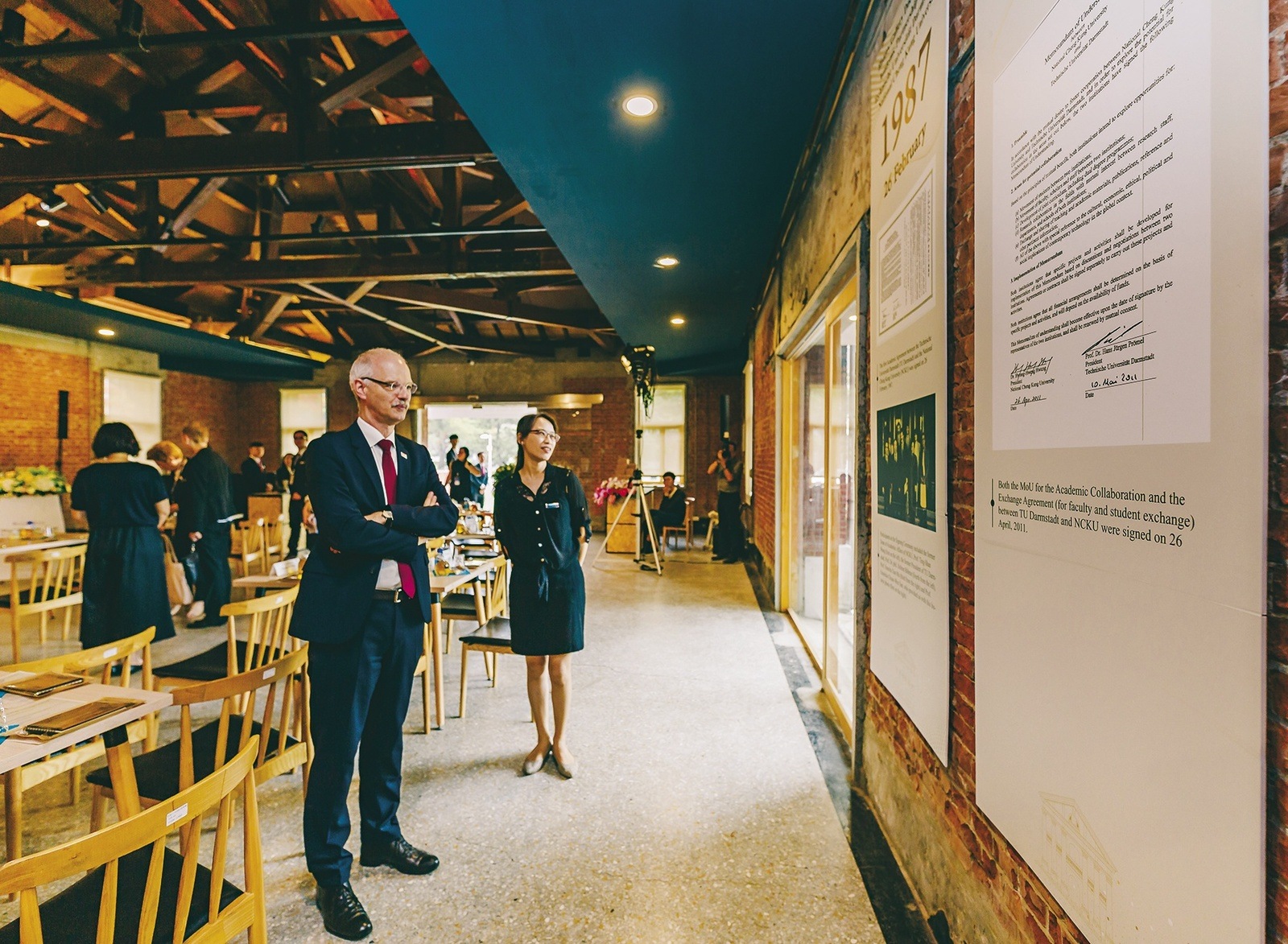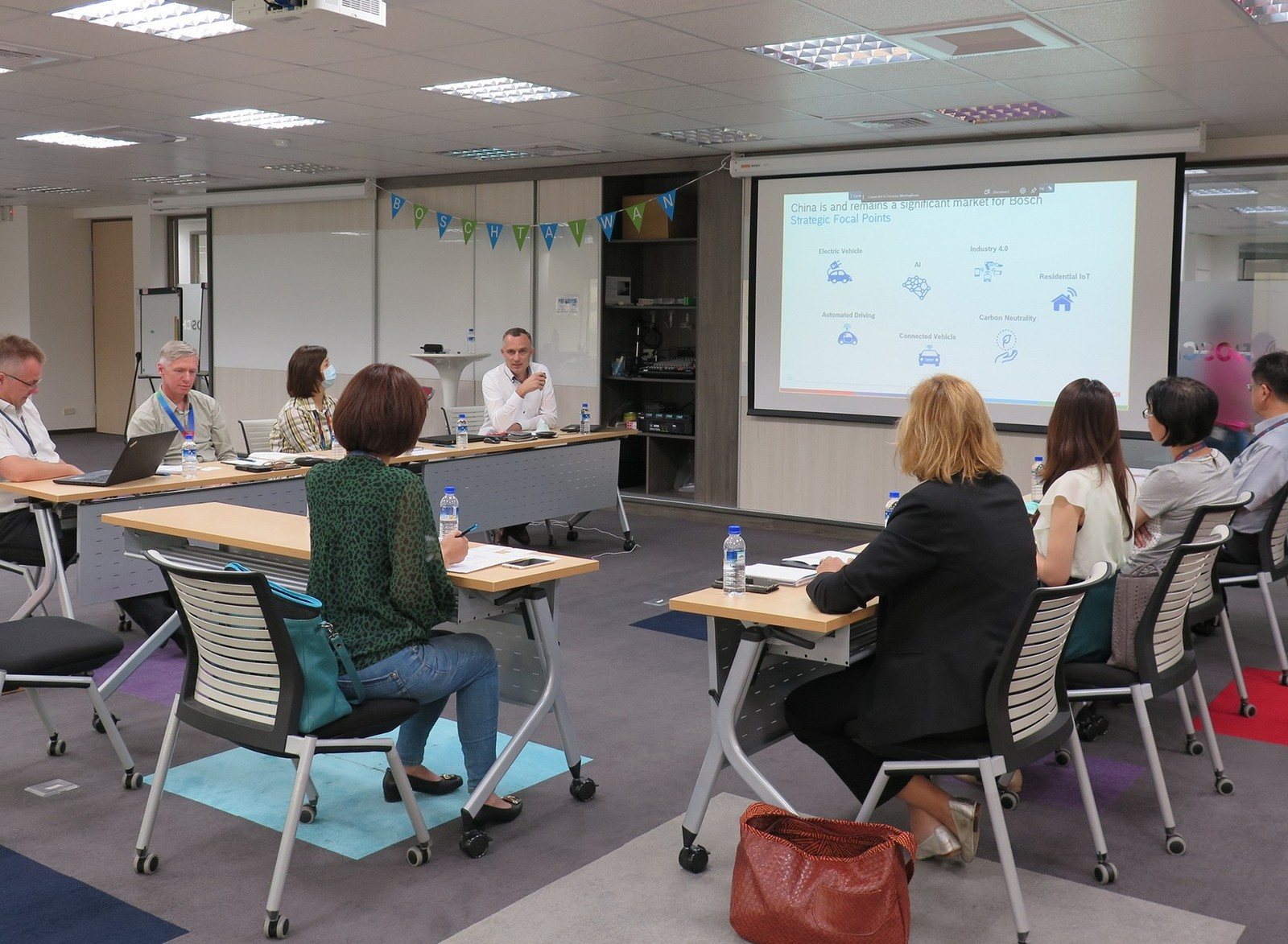


Technische Universität Darmstadt
A trifling golden spoon, merely 20-cm in size, represented a new milestone in the academic cooperation between Germany and Taiwan. The first ever Asian liaison office of a German university in Taiwan was established on the seventh floor of the Yunping Administration Hall of the National Cheng Kung University (NCKU).
The liaison office belongs to the Technische Universität Darmstadt (TU Darmstadt), a renowned technology institute in Europe. In 2019, TU Darmstadt started to post senior executives at the Asian liaison office, taking part in teaching at NCKU, and discussing various possibilities of further cooperation with NCKU.
At the liaison office’s unveiling ceremony in May 2019, Huey-Jen Jenny Su, President of NCKU, handed over a 20-cm golden key in the shape of a spoon to Hans Jürgen Prömel, President of TU Darmstadt, and announced the commencement of the collaboration between the two universities.
Taiwan Chosen for its Liberal Academic Tradition as Well as Science and Engineering R&D Achievements
Germany is a global industrial leader while TU Darmstadt is a member of the TU9, an organization comprising nine prestigious German technical universities. The alumni of the TU9 are ranked third best among all universities by German industry communities. The TU9—considered the German version of the Ivy League—has only two universities with offices in Asia. One of them is the Technische Universität München’s office in Singapore. The other is the TU Darmstadt office, which was relocated from Tongji University in Shanghai to NCKU.
The Germans are known for their rigorousness, and TU Darmstadt selected NCKU instead of other prestigious schools in Japan or Singapore as a result of detailed deliberation.
According to Chia-Yuan Chen, Associate Vice President for International Affairs in charge of the cooperation with TU Darmstadt, TU Darmstadt relocated its office from Shanghai to Tainan primarily because of Taiwan’s liberal academic tradition, outstanding science and engineering R&D as well as academia-industry achievements, and the more than three hundred courses taught in English at NCKU. TU Darmstadt’s office at NCKU would also strengthen the presence of German companies such as Bosch and Siemens in Taiwan. In President Hans Jürgen Prömel remarks at the unveiling ceremony, he extended his gratitude to NCKU for helping to transform this office from concept to reality by effective implementation of all relevant requirements.
According to Cindy Su, the Deputy Director of the International Relations Division, Office of International Affairs, who is also responsible for the cooperation, NCKU started to discuss cooperation with TU Darmstadt in the 1980’s and the two schools have developed considerable tacit understanding over the course of more than three decades. In 2019, approximately forty NCKU students participated in exchanges to TU Darmstadt, while more than ten TU Darmstadt students came to NCKU on exchanges.
American universities’ offices in Asia are primarily intended for student enrollment, while German universities’ overseas offices are intended to establish strong roots and explore more exchange opportunities, according to Su.
Next, NCKU will discuss short-term exchange of engineering students and R&D cooperation with TU Darmstadt. After more consensus is built, joint dual degree collaborations will also be sought to help develop NCKU into a top Taiwanese university in terms of staying abreast with German higher education.
German science and engineering education stresses practical craftsmanship as well as passing on knowledge from master to apprentice. According to Chen, how to incorporate such features into the NCKU’s engineering education for synergy development would be a big challenge.
However, many elementary and high schools in Taiwan have been strengthening their maker education, while Taiwan’s higher education as well as traditional and high-tech industries have been trying to upgrade themselves through precise academia-industry matching. Therefore, the golden spoon the NCKU handed over to TU Darmstadt to strengthen the exchanges between Germany and Taiwan is perhaps a key to resolve relevant contemporary issues.